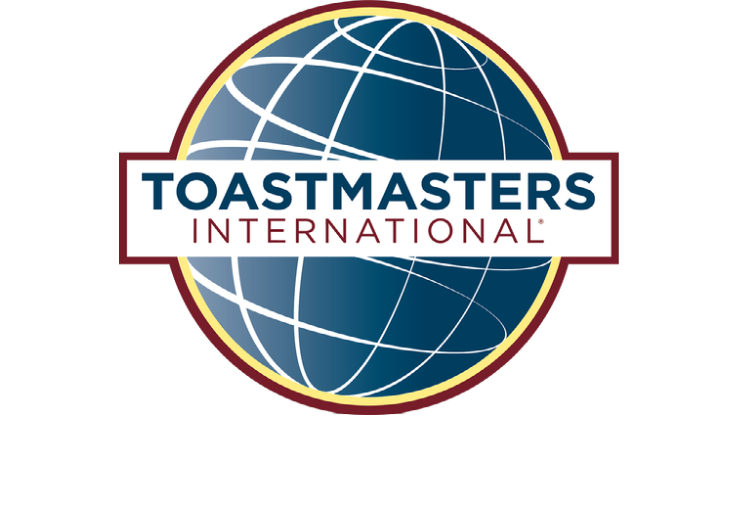contests
Toastmasters clubs all around the globe hold 4 contests annually. Club members compete to win their Club contest. The winners of the club contest will compete in their Area contest. The winner of the Area contest will compete in their Division contest. The winner of the Division contest will then compete in their District contest.
All contests except from the International Speech Contest end at the District level. The winner of the International District contest will compete in the Toastmasters World Championship of Public Speaking.
2 contests are held in the latter part of the year:
Table Topics
An impromptu speech. All contestants are assigned the same topic, determined by the contest chair, which is given to them when they are introduced to the stage. Speeches are 1 - 2 minutes in length. Any member can compete provided they are a fully paid up member.
Humorous
Contestants present a humorous 5 - 7 minute speech that must have opening, body, and close, not a series of one-liners. Any member can compete provided they are a fully paid up member.
2 contests are held in the early part of the year:
Evaluation
All contestants observe the same 5 -7 minute speech, and then present a 2 - 3 minute evaluation of that speech. Any member can compete provided they are a fully paid up member.
International
Contestants present a 5 -7 minute speech on a subject of their choosing. International speech contestants must have completed at least two levels of a path to participate in this contest.
What we need to hold a club contest
For a contest to be held club members need to sign up as contestants, a contest chair, judges, timers, counters and a sergeant at arms. Judges can be from our own club or from other clubs .
CONTESTANTS
To compete contestants need to be fully paid up members of the club classed as ‘in good standing’. There are no other requirements, except for the International contest which requires members to have completed 2 levels of a path in Pathways.
There is no limit to the number of contestants in a competition, but meeting length need to be considered.
roles
All helper roles except for the Contest Chair will be briefed by the chief judge.
Contest Chair – The ‘Toastmaster’ of the contest. They open and close the contest, explain how it works, brief and introduce contestants and more.
2 Timers – Similar to the normal Timekeeper role - one timer manages the lights, whilst the other looks at the stopwatch and notes down the contestant’s time. The role can be done by one timer if necessary.
2 Counters – Collects the judge’s ballots and adds up the results. The role can be done by one ballot counter if necessary.
Sergeant-At-Arms – Escorts the contestants out of the room when necessary, secures the door, and leads contestants into the room at the required times.
Test speaker (evaluation contest only) – Evaluation contests require a test speaker for contestants to evaluate. It is preferable that this speaker should be from another club, but can be done in club if necessary.
Judges
There are no requirements to be a judge at the Club Contest level, aside from being a paid member of their club. Judges should remain anonymous where possible; never point them out. Ideally you will need:
Chief judge – Briefs the judges, timers, ballot counters, Sergeant-at-Arms and selects the Tiebreaker judge. While the Chief Judge is a judge, they do not judge contestants. The role of the chief judge is to appoint and advise the judges, counters, timers, and tiebreaking judge. The chief judge also conducts the judges’ briefing before the contest, collects the time record sheet from the timers, collects the ballot from the tiebreaking judge, handles protests, and provides the list of winners to the Contest Chair at the end of the contest. Because the chief judge does not judge contestants, their identity does not need to remain anonymous.
5 Voting judges – Judges the contestants’ speeches, fills out judging ballot. The names of the Voting judges must remain anonymous, as much as is practical, and no judges' names or contact information is provided in any contest materials. Judges’ decisions are confidential, so there can be no confrontations with contestants or audience members who do not agree with the contest results.
Tie breaker judge – A similar role to a Voting judge. Results from the Voting judges are counted, and if there is a draw then the vote of the Tie-breaking judge is used to determine a winner.
In a perfect world, you will find all 7 judges (5 voting judges, 1 tie breaker, 1 chief judge), however the contest rules do note that if this is impractical this can be adjusted. At the minimum you should try to have at least 3 Voting Judges, and a Chief Judge who can also be the tie-breaker judge.
F.A.Q.
Where can I find more information or resources on speech contests?
The first place to look for further information is the Speech Contest Rulebook. This contains all the rules for speech contests, several checklists with common steps to run or participate in a contest, and a list of available resources.
What are the rules regarding usage of music, media, or props in a speech contest speech?
The use of props (including music and PowerPoint presentations) are allowed during speech contests in accordance with speech contest rules. Please review the Use of Props section of the Speech Contest Rulebook for complete details.


